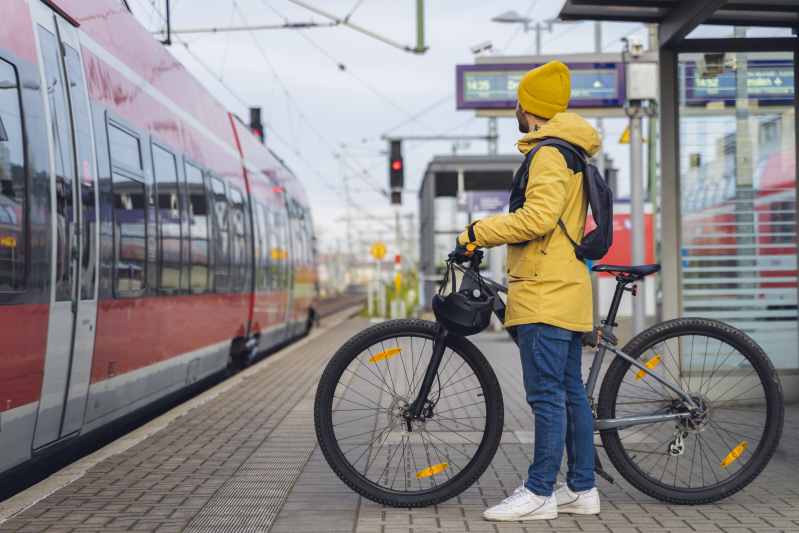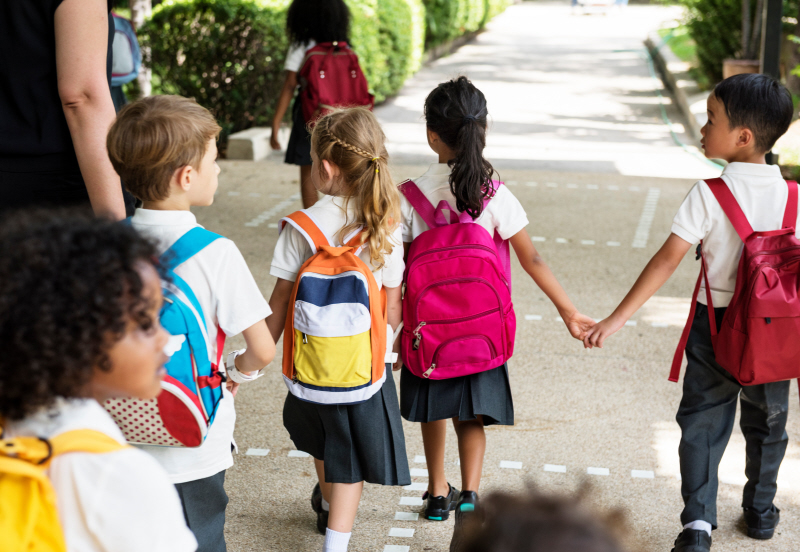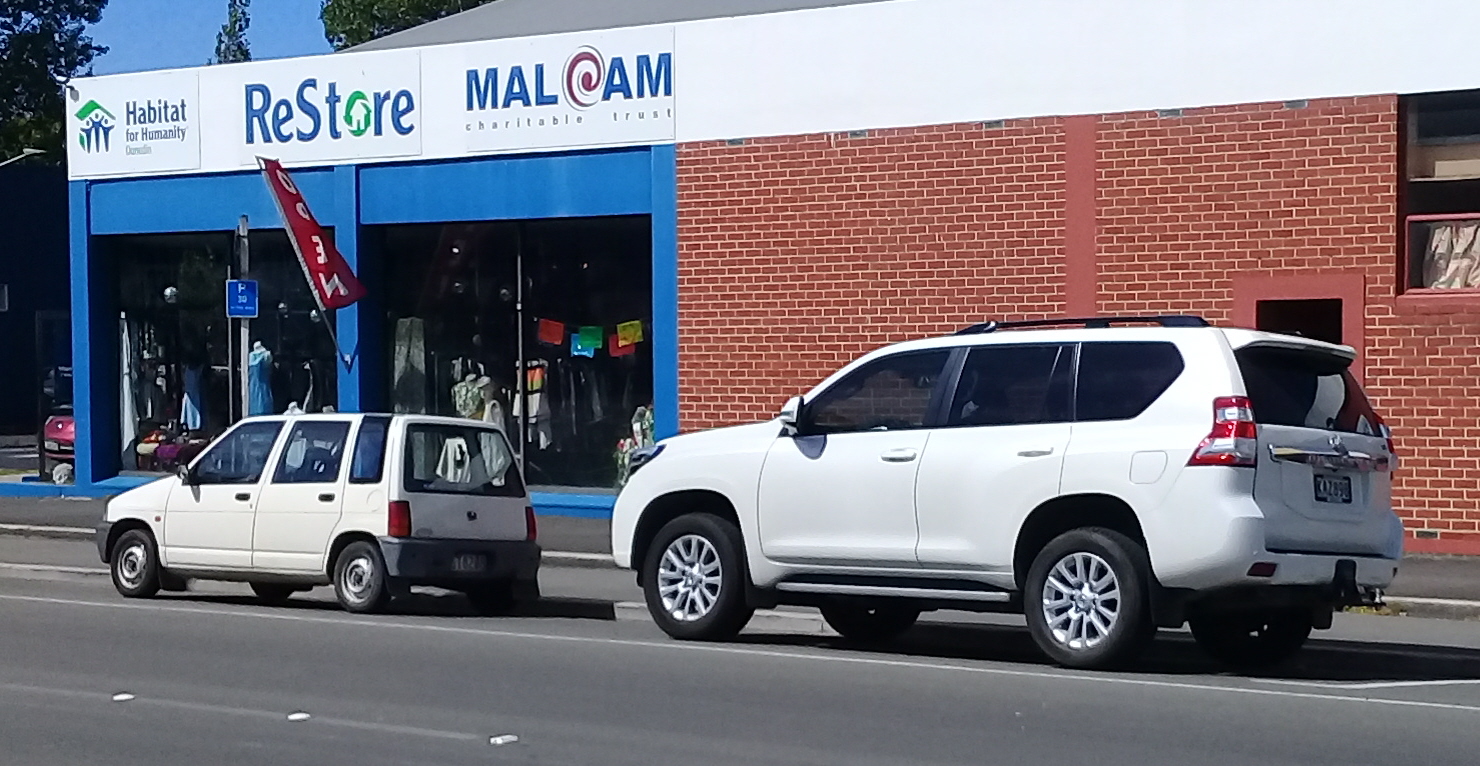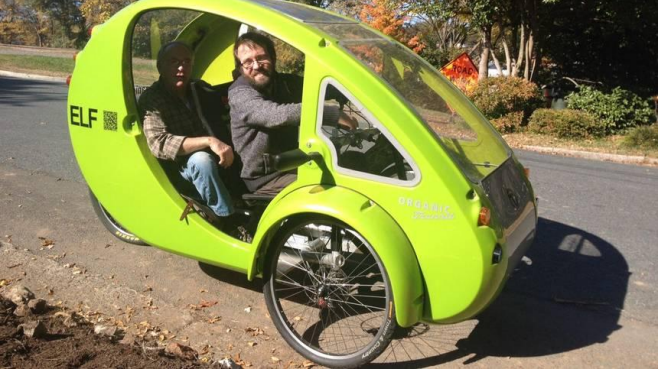Emphasis should be on public transport and not private transport because public transport is the most energy efficient form of transport.
The news media tends to focus on activists demanding action at the government level while glossing over the need for families and individuals to undertake action at a personal level. It is the inaction of not only governments and local authorities, but also families and individuals which has contributed to climate change. Changes in the consumption behaviour by families and individuals are needed to help mitigate the impact of climate change.
Communities, families, and individuals have an important role to play. We cannot leave all actions for government and local authorities to undertake. Our individual actions in the past have caused our current problems and our future actions can form a major part of the solution. Families and individuals need to realise that action starts at home. It is of note that some choices available to individuals and communities are currently constrained by the system, for example lack of safe cycleways and lack of regular cheap bus services. As central and local governments get up to speed with transport, recycling, and waste management, it will make it easier for individuals to change their lifestyle choices to reduce emissions.
The most effective ways of reducing greenhouses gases have been known for decades. Some actions are more effective than others. The peer reviewed publication, The Climate Mitigation Gap: Education and Government Recommendations Miss the Most Effective Individual Actions, by Seth Wynes and Kimberly Nicholas (2017) provides estimates of the saving of carbon dioxide equivalents (CO2e) in kilograms (kg) per year for several actions (download).
Global Warming Potential (GWP) is the heat absorbed by any greenhouse gas in the atmosphers as a multiple of the heat that would be absorbed by the same mass of CO2. GWP is 1 for CO2 and for other gases it depends on the gas and time frame. The CO2e of methane, a short-lived but more potent greenhouse gas than CO2, is typically estimated as a 100-year average. But methane is far more potent over a 10-year period than over an average of 100 years and the next few decades is the most critical period over which we need reductions in all forms of greenhouse gas emissions.
Many of us effectively eat oil due to widespread industrial farming practices which are reliant on using pesticides, artificial fertilisers, farm machinery, and long supply chains all of which currently makes heavy use of fossil fuels. Prior to the green agricultural revolution in the 1950s and 1960s, the energy required to grow food and put it on the plate was many times less than the Calories provided by the food. Industrial food production uses up to 10 times and more fossil fuel energy than the Calories of food on the plate. We all need to adopt alternative ways of producing local food which requires less energy. Permaculture is one such method.
About 30% of food is currently wasted in the global food supply chain from industrial farms to the waste bucket at home.
We need to drastically reduce our consumption of meat from ruminants (cows and sheep) which belch out methane, a short-lived but potent greenhouse gas. Methane is initially more potent than CO2 and currently contributes about 50% of global greenhouse gas equivalents. Many crops fed to animals can be eaten directly by humans. Land used for grazing can be planted back into forests which can absorb and store more CO2 than grass.
Families and individuals need to realise that action starts at home
Some actions are more effective than others
Reducing your overall consumption and being more frugal will result in fewer greenhouse gas emissions
Less production requires fewer workers
A 40-hour week is not cast in stone - more leisure time enriches our lives and improves our wellbeing
Job sharing and a Universal Basic Income will ensure wellbeing of everyone
Do not buy imported food. Buy local vegetables grown using permaculture principles
Promote local food resilience - read a more detailed article on how to do so here
The 100-year weighting of methane adopted by the International Panel on Climate Change (IPPC) de-emphasises the need to reduce methane gas emissions as soon as possible.
The following is a sample of the most effective high impact actions to reduce greenhouse gas emission estimated by Seth Wynes and Kimberly Nicholas:
- Have one fewer child - 23,700 to 117,700 kg of CO2e saved per year. The higher value applies for the well-developed nations.
- Live car-free - 1,000 to 5,300 kg of CO2e saved per year.
- Avoid one flight - 700 to 2,800 kg of CO2e saved per flight depending on length.
- Eat a plant-based diet - 300 to 1,600 kg of CO2e saved per year.
There are many additional actions that families and individuals can undertake to help reduce greenhouse gases. Many of these actions are based on what we choose to purchase. The book How Bad Are Bananas? The Carbon Footprint of Everything by Mike Berners-Lee (2011) estimates the carbon footprint of many purchases. The website The Green Ration Book: The Costs of Everyday Living is also an excellent guide. The Local Futures website provides an excellent and detailed Local Action Guide under the categories of Food, Business, Finance, Energy, Consumption, and Community.
Reducing your overall consumption and being more frugal will result in fewer greenhouse gas emissions. Less consumption means less production. Less production requires fewer workers. Unemployment is a negative when you need an income to purchase necessities and you want to work. Job Sharing would reduce levels of unemployment. A Universal Basic Income (UBI) would also ensure that everyone has a basic income regardless of employment.
Typical employment currently involves working a 40-hour week. This working week is not cast in stone. With fossil fuels and machines of production, we have the equivalent of many “energy slaves” working for us. We need to question why do we need to work a 40-hour work when, by doing so, we substantially reduce our leisure time. The leisure time gained by working less enriches our quality of life and wellbeing. Having fewer "energy slaves" working for us also means we will be doing more muscle work which can lead to greater physical and mental health and social cohesion.
The following sections provide the background and reasons behind major actions which are the most effective in reducing greenhouse gas emissions while, at the same time, reduce our impact on the environment.
Clothing is the most efficient way to keep warm. Do not heat a room or a house and then take off your jersey and put your thermals into a drawer. 180 C is an adequate temperature for humans and over 200 C is excessive. It is far too easy to accommodate a higher than necessary temperature by removing clothing.
Do not heat your entire home to the same temperature
Insulate yourself when cold - wear more clothing
- Do not spend your income on frivolous and unnecessary goods and services. Buy only what you need and not what you want.
- Do not buy an upgrade of an item when it is still able to satisfy your needs.
- Buy only durable goods which can be repaired.
- Avoid buying goods which use unnecessary and unsustainable packaging.
- Consider whether you need to buy new goods. Second hand goods can perform the same function and do not require additional embodied energy to manufacture.
- Purchase second hand clothing for children. Hand-me-downs from older to younger siblings within a family used to be the norm.
- Purchase second hand clothing for yourself.
- Do not buy clothing manufactured overseas. Support local manufacturing.
- Be more self-sufficient in the services you get someone else to do for you when you have the skills to do it for yourself. A more sustainable society thrives on less energy and the tertiary sector will accordingly shrink in size.
- Swap your services in which you have skills for someone else’s services. Learn new skills.
- Consider joining Local Currency Systems.
- Shop locally and support local retailers instead of shopping online.
Buy only what you need and not what you want
Learn more skills to be self-sufficient
After following the above recommendations, do not spend your surplus income on additional goods and services. Doing so defeats the purpose of reducing consumption in order to better assist mitigation of climate change.
If you have surplus income, and this applies more to the wealthy in the community, then consider investing in community projects including community wind turbines in areas where they are effective
Inequity exists between countries and also within countries. SCAN promotes greater equality between citizens of New Zealand and appeals to the more wealthy in New Zealand to assist those who are less fortunate. The rich well-developed countries such as New Zealand have contributed the most to climate change by way of high consumption levels and the same applies within countries. We all have a debt to repay to our younger generation and some have a greater debt to repay than others.
If you have investments, then divest from those that are destroying our planet through burning fossil fuels, destroying forests, polluting our waterways, and over fishing
Although we cannot leave all actions up to government and local authorities, families and individuals need to realise that powerful lobby groups and their influence over policy decisions tend to thwart necessary actions which are in the best interests of all citizens. These lobby groups need to be opposed because in our adversarial political system, all political parties need to be fully aware of your voice urging for necessary change.
Get out on the streets and march - be counted
The only question we have a right to ask is, What is the right thing to do?”
Wendell Berry
“ Hope isn’t the conviction that something will turn out well, but the certainty that something is worth doing regardless of how it turns out.”
Vaclav Havel (former President of the Czech Republic)



International Transport
- Do not take international flights. Keep in contact with family and friends by Skype or similar.
City to City Transport
- Use public transport instead of a car – train, bus, and ferry. Do not fly domestically.
Transport within Cities
- Walk short distances instead of using a car.
- Ride a bicycle, electric bike, or an electric scooter.
- If you continue using a car, then retain and use only one family car.
- Share your car with family, neighbours, and colleagues. Use it for social service transport in the community and consider carpooling.


- Fully insulate your own home.
- Do not heat your entire home to the same temperature.
- Consider installing a thermostat controlled ceiling fan with air filter to transfer hot air from the roof space during the day to your living areas below.
- Consider installing a heat pump. Set the lounge temperature to no more than 20° C.
- Do not use a heat pump for cooling in summer. Open windows on more than one wall where possible for cross flow and use a floor mounted fan instead of a heat pump.
- Set the temperature of a heat pump in a bedroom at night to no more than 16° C at night to remove the chill when necessary.
- Use an electric blanket in winter.
- Consider installing a solar hot water system.
- Double insulate your electric hot water cylinder (HWC) and insulate the hot water pipes to your shower and basin
- Consider installing a separate HWC or a system that heats only the flow of water for washing dishes. An alternative is to use a large electric jug to heat water for washing dishes.
- Reduce the temperature of your main HWC to a comfortable level for showers.
- Avoid using a bath. Use a shower instead.
- Use cold water for washing clothes.
- Use LED lights instead of incandescent light bulbs.
- Construct a new home using well-established solar passive design principles using recycled and local materials.
- Limit the size of your newbuild home. A New Zealand standard three bedroom home in the 1970s was 94 m2. Constructing a 200 m2 home will double greenhouse gas emissions.
- Consider constructing and living in a "Tiny house".
- Buy only the food that you need so as to avoid wasting food.
- Eat a predominantly plant based diet.
- Grow your own food using your own compost or join a community garden.
- Do not buy imported food. Buy local vegetables grown using permaculture principles.
- Avoid processed food and cook your own food using local staples. By doing so, you will reduce the need for packaging.
- Reduce food waste to peelings only and put food waste into a compost heap or an organic bin. Do not mix organic waste with other material.
It is now beyond dispute that it is physically and thermodynamically impossible to replace our global fleet of Internal Combustion Engine (ICE) cars with an Electric Vehicle (EV) - see our SCAN video and/or read our 2021 submission to the New Zealand Ministry for the Environment (download here). Not everyone can afford to purchase an EV. There is an equity issue here.
ICE vehicles will eventually be phased out and even banned. In the meantime, if you should continue using an ICE, then reduce the number of trips you take in any one day by doing a single round trip rather than multiple trips.
Cars are a means of transport. The days of a car being a status symbol are over. Large and heavy SUVs are wasteful of materials and energy, whether ICE or EV, and are overly extravagant purchases.
The ratio of the weight of any EV in the future to that of the passengers needs to be minimised as far as possible. For example, the ELF (Organic Transit) and PEBL (Better Bike) are both two-seater Micro Car Ebikes. A 1 kW motor on each wheel would enable driving the two-seater up steep hills without pedalling.




